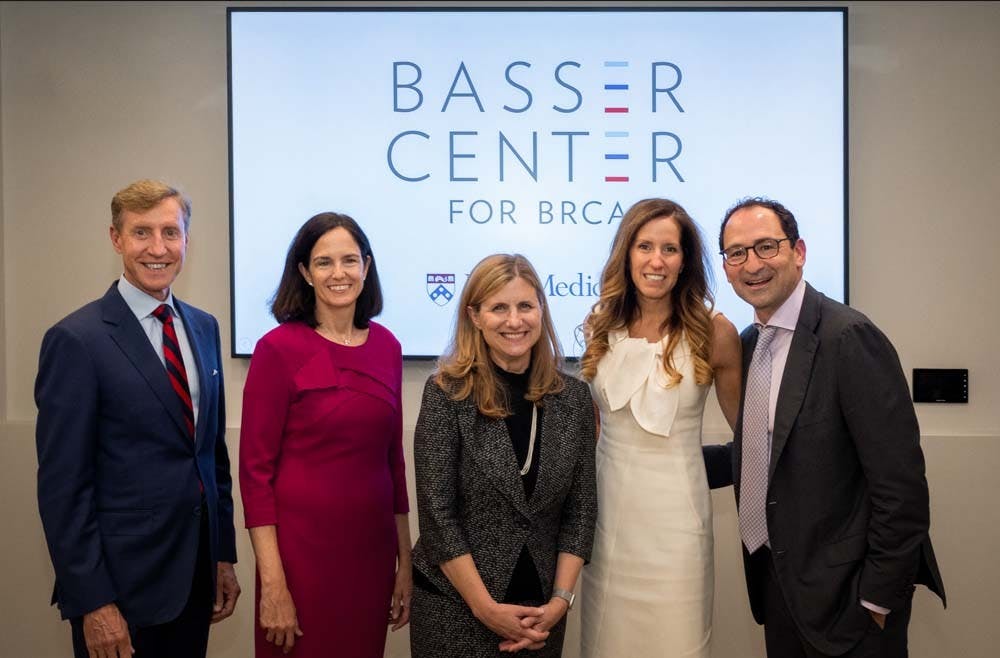
From left to right: J. Larry Jameson, Susan Domcheck, Liz Magill, Mindy Gray, Jonathan Gray
Two Penn graduates donated $55 million to Penn Medicine to research early identification and prevention of breast cancer.
1992 College graduate Mindy Gray and 1992 College and Wharton graduate Jonathan Gray made the donation to the Basser Center for BRCA, an institute they founded in 2012 with an earlier $25 million donation in honor of Mindy’s sister, Faith Basser, who died of ovarian cancer in 2002. The donation was made to establish and fund the Cancer Interception Institute through the Basser Center, Penn announced today.
The new gift brings the Grays’ total commitment to Penn and the Basser Center to over $125 million. The couple also made a $10 million donation to the University in 2019 to provide financial aid to first-generation, low-income students from New York City. In 2019, the Gray Foundation gave a $3 million grant to Katherine Nathanson, deputy director of Penn’s Abramson Cancer Center, to study the effect of breast cancer on the immune system.
Researchers at the Cancer Interception Institute will focus on stopping the disease in its tracks when the first cancerous cells develop or blocking the center from developing entirely.
“The dream of intercepting these cancers at their earliest stages or preventing them in the first place is no longer science fiction,” Mindy and Jon Gray told Penn Medicine. “We are thrilled to build on the decade of success at the Basser Center and work towards what should be a transformation in how future generations face these diseases.”
The Basser Center, housed within Penn Medicine’s Abramson Cancer Center, promotes awareness of hereditary cancers, spearheads educational efforts devoted to researching and connecting with minority groups with BRCA-related mutations, and provides families with genetic counseling services.
Engagement resources have focused on connecting with minority communities, who have a higher likelihood of contracting a BRCA gene mutation, including a 2013 effort to raise awareness for the BRCA-1 and BRCA-2 gene mutations that disproportionately impact Jewish communities by working with over 1,500 synagogues.
Penn President Liz Magill said the Grays are “philanthropic visionaries” who have made a profound impact on how medical providers engage with patients at risk of hereditary cancers.
“We are so proud to partner with them to transform the outlook for individuals with BRCA mutations and give them better, nonsurgical, options to live healthy, long lives,” Magill told Penn Medicine.
Susan Domchek, Executive Director of the Basser Center and professor of oncology, said the Grays’ gift to the institute holds “tremendous promise” for families coping with BRCA mutations.
“We now sit at an inflection point where we have the ability to revolutionize the timeline of cancer care,” Domchek told Penn Medicine.
The Daily Pennsylvanian is an independent, student-run newspaper. Please consider making a donation to support the coverage that shapes the University. Your generosity ensures a future of strong journalism at Penn.
Donate




